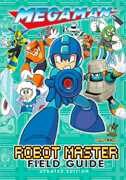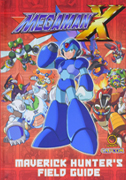
It’s All About the Name, and How You Play It
 It’s funny how some names find their way into the common, every day vernacular. Band-aids for adhesive bandage strips, Kool-Aid for sugary fruit-flavored drink mixes, or even Coke for just about any soda that a person can’t bother remembering the name of, but are still sure to get upset about when you give them an actual Coke.
It’s funny how some names find their way into the common, every day vernacular. Band-aids for adhesive bandage strips, Kool-Aid for sugary fruit-flavored drink mixes, or even Coke for just about any soda that a person can’t bother remembering the name of, but are still sure to get upset about when you give them an actual Coke.
Video games, of course, are not immune to this. I’m not sure how many reading this know or were aware, but back in the days when the Nintendo Entertainment System revived the home video game industry, it had the same sort of effect. Most people never used the “Entertainment System” suffix, and the abbreviation “NES” seemed nearly as rare, shy of in enthusiast publications. People just called it the “Nintendo.” Even if you were playing another console entirely, you weren’t playing video games; you were playing “Nintendo.”
In fact, among some small mom’n’pop-type video rental places around here, I still see signs of it, with large, bold signs bought and paid for long ago which proudly declare “we rent Nintendo,” or simply featuring the name alongside other mediums.
Of course, over the years, Nintendo’s own penetration into the market as such has not lasted; the rise of SEGA and then others eventually led to the term “video games” becoming the more common, all-encompassing term, though when Sony entered the market, it seemed as though “PlayStation” was poised to take the proverbial crown of mainstream nomenclature indifference.
So too was Xbox at some time after joining the fray, and while both brands do see occasional use as a generic term, sometimes even resulting in hilarity, neither one has really managed to conquer the mainstream consciousness in the way Nintendo managed back in the day. In fact, it even seems Nintendo itself is trying to recapture its former glory in the way it has branded the Wii; rarely is it ever referred to as the “Nintendo Wii,” but usually as simply “Wii,” though now and again, some people will tie the two together. Perhaps as a way of making sure you know which “Wii” they mean, but who can say?
However, with competition as strong as it is now, it seems unlikely that any one brand will ever reach the level of undisputed dominance which Nintendo once held; while there is no question that Nintendo is raking in tons of cash from the mainstream audience, perhaps ultimately to even greater profit and sales numbers than they had in the NES days, it remains rather unlikely that the term “Wii” is ever going to be applied to the likes of the Xbox 360 or PlayStation 3 in the sort of way we’ve seen in the past.
Looking beyond consoles, though, the NES is not the only system made by Nintendo which managed to practically define those which came after; though the system is all but dead, the Game Boy has practically ingrained itself into our culture as the definitive portable gaming device, even with the Nintendo DS enjoying the success that it has among gamers of all types, and the PlayStation Portable doing as well as it has.
I had thought that such use of the term “Game Boy” had fallen away as the Nintendo DS devoured the market, but it would seem that I was quite wrong. A recently-posted article on Yahoo! about “7 Ways to Annoy a Flight Attendant” alerted me to this with the following rule:
3. Think that because you’re on an airplane you’re off-duty as a parent.
Stop expecting us to have spare diapers, formula, medicine, toys, playing cards, or batteries for DVD players or Game Boys. It’s an airplane, not a 7-11. Take your kid to the restroom before you board. Leave the dry cereal and Legos at home and bring snacks and toys for your kids that won’t make a horrible mess.
Huh, so there you have it. Of course, I imagine it’s easily possible that a number of kids, or even adults, may still bring an actual trusty old Game Boy onto their flights, but I get the feeling the DS and PSP are more common, and this is simply a matter of old habits dying hard. And ironically, portables now don’t even use regular double-A batteries or the like any more.
Nonetheless, it’s interesting to look back at how the general terms commonly used for video games and consoles have evolved, or perhaps in the case of Game Boy, have yet to evolve. I imagine there will one day be a challenger great enough to wrest that particular bit of glory away from Nintendo, and if not, it may simply be a matter of change over time, to people who grew up with Nintendo DSes and PSPs, not even knowing what a “Game Boy” ever was, shy of either reading about it or, God willing, Nintendo brings their classics to a portable Virtual Console.
And beyond that? One is left to wonder if, one day, a video game system might once again become so popular and crush all competition so thoroughly that the way we refer to video games is changed yet again.
–LBD “Nytetrayn”
David Oxford, or “LBD ‘Nytetrayn’,” as he is sometimes also known, is a freelance writer of many varied interests who resides in Toronto, Ontario, Canada. If you’re interested in hiring him, please drop him a line at david.oxford (at) nyteworks.net.
For a full list of places to find him online, click here.
Prev/Next in Category(s)
Prev/Next by Date





Comments